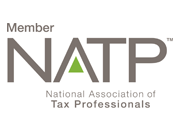The Role of Tax Resolution Firms: What They Can Do for You
October 27, 2024
This is a subtitle for your new post
If you’ve recently received a notice from the IRS, the situation can feel daunting. The prospect of managing tax debt might seem overwhelming, and you may be unsure about what steps to take next.
Fortunately, you don’t have to navigate this complex area alone. Tax resolution firms are here to help, providing essential guidance and support tailored to your unique circumstances. Small business tax resolution firms, such as Advantage Tax Relief, Inc. in Itasca, IL ease your mind by answering every question and taking the time to get to know you and your situation.
Personalized Support from Tax Resolution Experts
1. Understanding Your Unique Situation
Every tax issue is different, which is why the first step for any tax resolution professional is to fully understand your specific circumstances. This means conducting a comprehensive review of your financial situation, tax returns, and any correspondence you've had with the IRS. By gathering all relevant information, these firms can get a clear picture of your tax liabilities and devise a strategy that suits your needs.
2. Custom Solutions Just for You
Tax resolution professionals specialize in crafting solutions that align with your individual situation. Whether you’re dealing with overwhelming debt, unfiled returns, or troubling IRS notices, they tailor their approach to address your specific challenges. This personalized service is invaluable, as it allows for a more effective resolution.
For example, if you’re facing significant tax debt, a professional might explore options such as:
- Offers in Compromise (OIC): This negotiation tool enables taxpayers to settle their tax debts for less than the full amount owed. A tax resolution expert will assess your financial situation to determine if you qualify, potentially easing your tax burden.
- Payment Plans: If paying your tax debt in full feels out of reach, professionals can help you set up an installment agreement with the IRS. This allows you to make manageable monthly payments, helping to alleviate immediate financial pressure.
3. Navigating the IRS Communication Maze
Communicating with the IRS can be intimidating, especially if you’re unsure of your rights and obligations. Tax resolution firms act as your advocates, handling all communications with the IRS on your behalf. They respond to notices, negotiate settlements, and ensure that your case is managed efficiently. This representation can take a significant weight off your shoulders.
Alleviating Stress During Tax Challenges
One of the most important benefits of finding a trusted tax resolution firm is the reduction of stress that comes with tax debt. The uncertainty and fear of IRS actions can be paralyzing, but with the support of an expert, you can regain your peace of mind. Here’s how:
Expert Guidance Every Step of the Way
Knowing you have a knowledgeable ally can ease your worries. Tax resolution firms are well-versed in tax codes and IRS processes, enabling them to navigate the complexities on your behalf. This expertise ensures that you have someone who understands the ins and outs of tax resolution.
Emotional Support and Reassurance
Dealing with tax debt can take an emotional toll. These professionals provide not just financial expertise but also emotional support. They understand the challenges you’re facing and work diligently to alleviate your concerns, ensuring you never feel alone in the process.
A Clear Roadmap to Resolution
Tax resolution firms develop a tailored action plan specific to your situation. This roadmap outlines the steps involved in resolving your tax issues, making the process feel much more manageable. Having a clear plan in place can reduce anxiety and empower you to take control of your financial future.
Planning for Your Financial Well-Being
Engaging a tax resolution firm doesn’t just address immediate concerns; it sets the foundation for long-term financial health. They can help you implement strategies to prevent future tax problems and improve your financial stability:
- Budgeting Advice: Professionals can assist in creating a budget that factors in your tax obligations, ensuring you set aside money for future payments and avoid falling behind again.
- Tax Planning Insights: While tax resolution professionals don’t provide direct tax advice, they can guide you in understanding potential tax implications of your financial decisions, helping you make informed choices moving forward.
Moving Forward
Navigating tax debt is a challenging journey, but you don’t have to face it alone. Tax resolution services are dedicated to providing tailored solutions that meet your unique circumstances, alleviating stress and advocating for you every step of the way.
By partnering with experts in the field, you can reclaim control over your financial situation and work towards a brighter, tax-compliant future. If you’re dealing with tax debt, don’t hesitate to reach out to our team of tax resolution professionals at Advantage Tax Relief, Inc.
We’re here to help you find the right resolution options for your specific situation and work diligently to achieve the best possible outcome.
Contact us today at 866-789-1040
and ask for John or Linda to take the first step toward a more secure financial future.

The IRS in December sent a total of $2.4 billion in "special payments" to roughly 1 million Americans, part of an effort to ensure that people who didn't receive all of their federal stimulus checks during the pandemic would finally get the money. Most eligible taxpayers have already received their Recovery Rebate Credit, as the payment is called, but for those who haven't there is still time to submit a claim. But time is running out, as the deadline to file a claim is April 15. Here's what to know. What to know about the $1,400 IRS stimulus checks The Recovery Rebate Credit was designed for people who didn't get all or some of the stimulus checks when they were issued during the pandemic. Lawmakers authorized three stimulus payments, with two sent in 2020 and a third in 2021. The checks are a holdover from the three stimulus payments that were sent during the pandemic, as some people may not have received some of the money, even if they were eligible. The tax agency disbursed the funds after reviewing internal data that showed many people had filed tax returns but yet didn't claim what is known as the "recovery rebate credit" in 2021. However, non-filers, or those who have not filed Payment amounts will vary by person, with a maximum amount of $1,400 per recipient, the agency said in a statement. Who will get a payment from the IRS? Most taxpayers who were eligible for the stimulus payments have already received them directly, or later through the recovery rebate credit, the IRS said. However, the encourages non-filers to claim credits before the approaching April 15 deadline, as they may be eligible for the the up to $1,400 payment. Who is not eligible for a payment from the IRS? The eligibility requirements to file a claim to the 2021 Recovery Rebate Credit are as follows: -You are a legal U.S. resident. -Either you or someone you claim as a dependent has a valid Social Security Number or Adoption Taxpayer Identification Number issued by the IRS. -You cannot be claimed as a dependent on another taxpayer's 2021 tax return. -See here for more information on eligibility. Do you need to apply for the IRS payment? For those who have not yet received a payment, the answer is yes. While most eligible taxpayers have already received the funds through automatic payments, eligible non-filers will have to file a claim in order to get their payment. In order to claim the 2021 Recovery Rebate Credit, taxpayers must file a 2021 tax return by the April 15, 2025, deadline, "even if their income from a job, business or other source was minimal or non-existent," according to the IRS' website. Detailed information on how to file a claim for the 2021 credit can be found here. When will the IRS send the payments? The tax agency said the checks will be sent in December, with most of the payments arriving by late January 2025. The money will either be automatically direct deposited to the recipient's bank account or will arrive in the mail via a paper check. Contact us today for all your IRS needs! {{content_library.global.phone.148012611}}

Tax season started in late January, but the IRS’s latest statistics show that many Americans are still waiting to file their taxes. As of February 7, 7.7% fewer tax returns have been received by the agency compared to a similar time frame last year, according to its latest data release. While the IRS expects filing numbers to even out, the IRS.gov website has experienced a 40% decline in visits this year to date over last year. Francine Lipman, CPA, a tax law professor at the University of Nevada, Las Vegas, says the reasons could be endless but probably come down to simple procrastination. “Despite all the Super Bowl ads, I don’t believe that tax issues are on people’s radar yet,” adds Lipman. This is surprising considering the political climate, says Jordan Rippy, an accounting professor at Johns Hopkins University’s Carey Business School, who expected to see an uptick in returns filed this year. “Given the general climate surrounding the new administration, I would have expected more anxiety in the general population and a desire to receive refunds more quickly,” she tells Fortune. Elon Musk’s Department of Government Efficiency (DOGE) reportedly visited the IRS on Thursday to begin analyzing the agency’s operations. Senator Ron Wyden (D-OR), ranking member of the Senate Finance Committee, later posted on X that “if your refund is delayed, they could very well be the reason.” Average tax refunds are higher this year so far The rise in electronic filing is one of the biggest changes to the tax system in the last decade. With over 90% of individual taxpayers now filing their returns online, the process has become easier to handle for many Americans. But taxpayers still miss out on over $7 billion in underclaimed and unclaimed tax credits and deductions each year. In the 2025 tax season to date, tax filers have received a 18.6% increase in their average refund amount ($2,065) compared to this time last year ($1,741). The IRS cautions this isn’t a perfect indicator of the final trend in tax refunds, since it’s early in the season. The agency says most refunds are issued within 21 days. In the final analysis, the average refund last year was around $3,138. Compared to 10 years prior, last year’s average rebate was down nearly 30% on an inflation-adjusted basis. Rippy says she is surprised that average tax refunds have not decreased more as Americans realize they can adjust their withholdings and get more money per paycheck throughout the year. “If you receive a large tax refund, what you've essentially done is given a loan to the government over the last year that you didn't have to give them, and you've done that interest-free,” says Rippy. At the same time, she admits that the fact that many Americans expect a big refund year after year is a good thing, as it’s a form of forced savings. While many end up saving their refund, others use it to pay down debt, make a home improvement, or go on vacation.

If you’re dealing with IRS wage garnishment, it can feel like you're trapped in a difficult situation. The IRS can take a portion of your paycheck to satisfy your tax debt, causing serious financial strain. However, you do not have to face this alone. There are steps you can take to stop garnishment and restore control over your finances. This guide will help you understand what wage garnishment is, why it happens, and what actions you can take to end it. Understanding IRS Wage Garnishment Wage garnishment is a legal tool used by the IRS to collect unpaid taxes. Unlike many other types of debt collection, the IRS does not need a court order to garnish your wages. They will send you a Final Notice of Intent to Levy before initiating garnishment, and if you don't act, they will take a portion of your paycheck to pay off your tax debt. How Wage Garnishment Affects You Wage garnishment can create numerous challenges, including: - Loss of Income: With part of your wages withheld, it can be difficult to meet daily living expenses. - Damage to Your Credit: Unresolved tax debts and garnishments can hurt your credit rating, making it difficult to obtain loans or secure favorable financing terms in the future. - Stress and Emotional Toll: The financial pressure can create stress, affecting your mental health and relationships. Professional Impact: If colleagues find out about the garnishment, it could affect your reputation at work. Steps to Take to Stop IRS Wage Garnishment If you’re facing wage garnishment, take action quickly to put an end to it: 1. Respond to IRS Notices Immediately If you receive any IRS notice about garnishment, it's vital to act quickly. Ignoring it will only escalate the situation. Contact the IRS and request a Collection Due Process hearing where you can address the garnishment. 2. Explore Payment Plans and Agreements The IRS offers various options to settle your debt, such as installment agreements or an Offer in Compromise (OIC). These options allow you to repay your debt over time or settle it for less than what you owe. 3. Apply for Hardship Relief If the garnishment is putting you in financial distress, you may qualify for a hardship exemption, which can temporarily stop the garnishment while you work out a solution. 4. Contest the Tax Debt If you believe the IRS has made a mistake in assessing your tax debt, you have the right to dispute it. During this dispute process, garnishment can be put on hold until the matter is resolved. 5. Seek Professional Help Dealing with the IRS alone can be overwhelming. A skilled tax professional can help you navigate the complex process, negotiate with the IRS, and secure the best possible resolution for your situation. Why You Should Work with Advantage Tax Relief The process of stopping IRS wage garnishment requires specialized knowledge and experience. Advantage Tax Relief, located in Itasca, IL, offers over a decade of experience in tax resolution. Their team of experts knows how to work with the IRS to resolve wage garnishment issues and put together a personalized plan for you. Working with Advantage Tax Relief means having a dedicated partner who understands the nuances of IRS procedures and will advocate on your behalf to reach a favorable resolution. Their team will help you explore all options, including negotiating payment plans, filing for hardship relief, or contesting tax assessments. Take Action Today Don’t let wage garnishment control your life. Contact Advantage Tax Relief in Itasca, IL at 630-773-3200 for a consultation. Their team is ready to guide you through this process, offering the help you need to regain control of your finances and find relief from the IRS.







Share On: